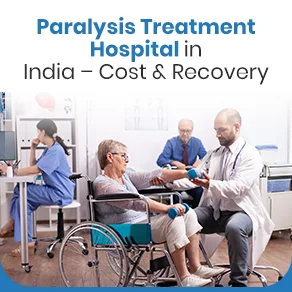
At IBS Hospital, Endoscopic Spine Surgery represents the forefront of innovative spinal care. Emphasizing a least-invasive approach, this method aims to perform various spine interventions with minimal discomfort. Utilizing state-of-the-art technology, it ensures precise treatment for a range of spinal conditions.



What is Endoscopic Spine Surgeries ?
Endoscopic spine surgery offers the least invasive approach for assessing and treating various spine and disc problems. This surgery is performed by making 2 to 3 small incisions. A flexible tube, equipped with an optical source and a surgical camera, commonly referred to as an endoscope, is introduced through one of these incisions. This provides detailed imaging guidance that assists surgeons in directing surgical tools to treat issues like disc tears, herniated discs, protruding discs, and bulging discs. The magnified images allow doctors to carry out each intervention with greater precision and accuracy.
What are the conditions that can be assessed and treated using Endoscopic Spine Surgery?
Endoscopic spine surgery may be performed for assessing and treating the following conditions:
Spinal Arthritis: An inflammatory condition marked by stiffness and pain in the lower back, usually affecting the facet joints;and the sacroiliac joints.
Bone Spurs of the Spine: Also known as osteophytes, these are solid, bony growths that develop in the spinal joints due to degeneration
Bulging Disc: A painful condition characterized by the abnormal protrusion of a spinal disc, putting excessive pressure on nerve roots.
Discogenic Back Pain: A type of lower back pain triggered by damage to intervertebral discs due to an underlying medical;condition, injury, or trauma.
Failed Back Surgery: A painful condition triggered, left untreated, or aggravated by unsuccessful back surgery, often;caused by incorrect diagnosis.
Foraminal Stenosis: Characterized by the narrowing of the spinal canal in a specific area of the spine, i.e., the neural foramen.
What are the advantages of Endoscopic Spine Surgery?
- It provides a superior view of the affected area of the spine, enabling doctors to operate with ease.
- There is very little scarring; unlike traditional surgery, the incision is no more than ½ inch long.
- There is minimal to no damage to the surrounding muscles and tissues, which helps preserve normal spine function.
- Anesthesia-related complications are significantly reduced.
- Postoperative pain is minimal, ensuring little to no dependence on pain medications.
- The recovery period and hospital stay are typically very short
IBS Hospital Empowers Your Treatment with Cutting-edge Technology
We continuously incorporate cutting-edge technologies from around the world into our offerings, such as a surgical system that allows for precise and confident complex procedures. We use magnetic stimulation to treat certain neurological conditions and create personalised brain maps for tailored treatment plans. Nerve monitoring during surgeries ensures the nervous system is not compromised, and a robotic exoskeleton aids in mobility issues. Our goal at IBS Hospital is to provide the best care possible, utilising the latest and most innovative technologies available.







